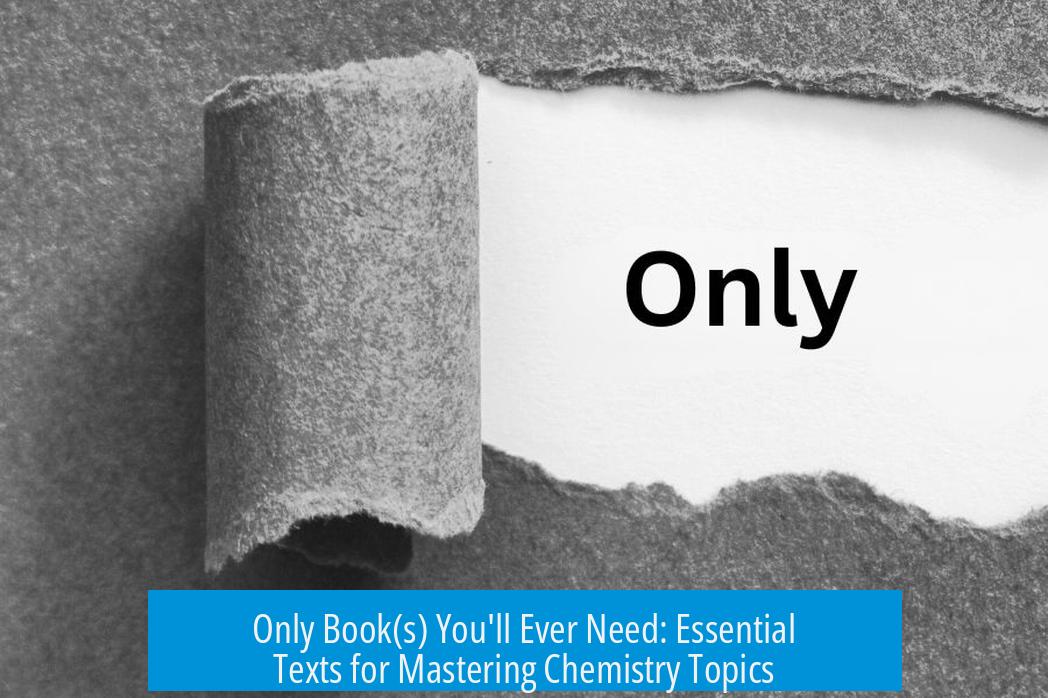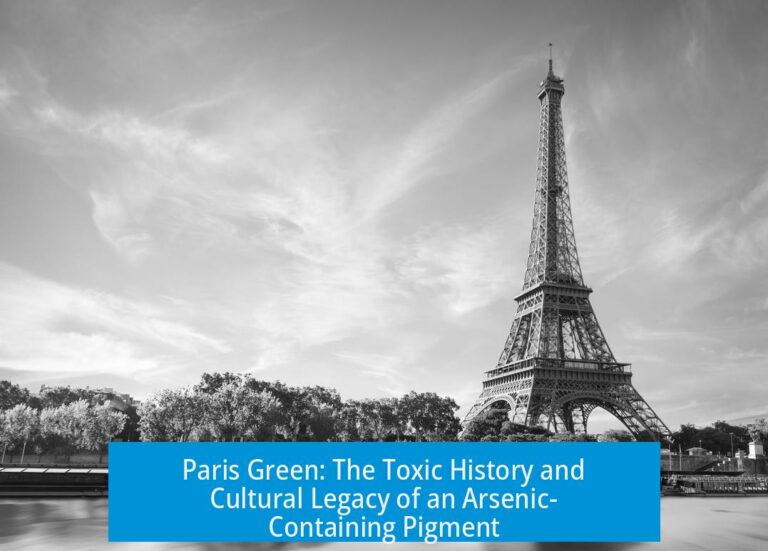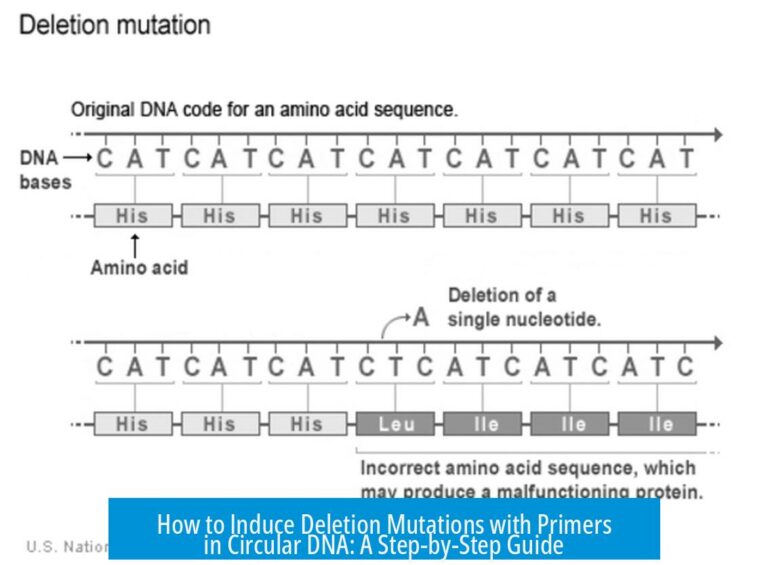Only Book(s) You’ll Ever Need: Comprehensive Chemistry Textbooks
Selecting the only book or books you’ll ever need in chemistry requires considering the field’s broad and detailed nature. Essential textbooks differ depending on the chemistry branch—organic, inorganic, physical, analytical, or specialized topics. This article identifies highly recommended core references to cover foundational understanding and practical knowledge across chemistry disciplines.
Organic Chemistry: Core Texts for Deep Understanding

Organic chemistry demands extensive study of mechanisms, synthesis, and structure elucidation. Key textbooks offer comprehensive and accessible insights for students and professionals alike.
- Clayden et al. Organic Chemistry Textbook: This book provides an extensive and clear treatment of organic chemistry fundamentals ideal for in-depth undergraduate or graduate study.
- Organic Chemistry As A Second Language by David Klein: Targeted at undergraduates, this book simplifies complex concepts, making it a highly preferred secondary resource.
- Mechanism and Theory in Organic Chemistry by Lowry and Richardson: This text transforms rote learning into true understanding, particularly useful in sophomore-level courses.
- March’s Advanced Organic Chemistry: A definitive advanced reference, covering detailed mechanistic and synthetic routes.
- Greene’s Protective Groups in Organic Synthesis: This specialized handbook is essential for synthetic chemists managing functional group transformations.
- Spectrometric Identification of Organic Compounds by Silverstein: Offers excellent references for IR, Mass Spectrometry, and especially NMR spectral interpretation.
- Advanced Practical Organic Chemistry by Leonard: A practical guide useful for mastering laboratory techniques crucial to organic synthesis.
- Organic Chemistry Lab Survival Manual by Zubrick: A pragmatic manual for experimental organic chemistry, with older editions freely available online.
Inorganic Chemistry: Foundational and Specialized Resources
Inorganic chemistry requires understanding coordination compounds, crystal structures, and ligand field theory. The following texts serve as pillars of knowledge and reference.
- Shriver & Atkins Inorganic Chemistry: A phenomenal comprehensive textbook covering fundamental and advanced inorganic topics.
- Housecroft’s Inorganic Chemistry: Well-liked for its engaging approach to inorganic principles and applications.
- Ligand Field Theory and its Applications: Classic treatment of coordination chemistry concepts critical to inorganic studies.
- Structural Methods in Molecular Inorganic Chemistry by Rankin: Covers structural characterization methods, including crystallography, for inorganic chemists.
- Riedel’s Textbook for Inorganic Chemistry: Widely used for its clarity and completeness in inorganic topics.
- Lee’s Inorganic Chemistry: A dependable reference often paired with Vogel, Clayden, Boyd & Morrison, and Atkins.
Physical Chemistry: Authoritative Textbooks and References
Physical chemistry integrates thermodynamics, kinetics, quantum chemistry, and statistical mechanics. Key textbooks provide clarity and rigor.
- McQuarrie and Simon for Physical Chemistry: Frequently praised for clarity, this text surpasses many others in explaining physical chemistry concepts.
- Atkins Physical Chemistry (4th Edition): Despite criticism of newer editions, this serves as a solid thermodynamics reference.
- Kotz and Treichel (later Kotz, Treichel and Townsend): Recommended for general chemistry covering broad physical chemistry topics.
Analytical Chemistry: Essential Texts and Encyclopedias
Analytical chemistry emphasizes measurement techniques and chemical analysis methods. Selected references cover both practical and theoretical foundations.
- Harris and Skoog: Standard textbooks for analytical chemistry, guiding laboratory practice and theory.
- Treatise on Analytical Chemistry, ed. Kolthoff and Elving: Extensive multi-volume series offering in-depth analytical chemical methods.
- Comprehensive Analytical Chemistry, ed. Wilson & Wilson: A broad series covering analytical advances over decades.
- Encyclopedia of Analytical Chemistry: Multi-volume resource for comprehensive descriptions and developments.
Reference Handbooks: Indispensable Compendiums
Reference handbooks provide critical chemical data, physical constants, and compound information essential for research and industrial work.
- CRC Handbook of Chemistry and Physics: Highly recommended as a print copy for quick consultation of physical and chemical constants.
- Beilstein’s Handbook: Comprehensive organic compound data and reactivity information.
- Gmelin’s Handbook: Detailed inorganic chemistry resource.
- Encyclopedia of Organic Reagents: Focused compendium on reagents used in organic synthesis.
- Merck Index: Concise handbook of chemicals, drugs, and biologicals.
Other Highly Recommended and Specialized Books
Specialized texts help deepen understanding in advanced or niche areas of chemistry.
- Cotton’s Chemical Applications of Group Theory: Elevated text suited to advanced undergraduate or graduate students, focusing on symmetry and group theory applications.
- Brückner’s Reaction Mechanisms: Often regarded as a “bible” in organic mechanistic pathways.
- Computer Simulations of Liquids by Allen and Tildesley: A guide to computational modeling in physical chemistry.
- Modern Quantum Chemistry by Szabo and Ostlund: Recommended for computational modeling and electronic structure calculations.
- Structure Determination of Organic Compounds by Pretsch et al: Useful for elucidating molecular structures using spectroscopy.
- Perry’s Handbook of Chemical Engineering: Essential for scaling chemical processes in industrial applications.
- Pauling’s General Chemistry: A classic covering physical, inorganic, and theoretical chemistry despite its age.
- Vogel’s Texts: Known for applied chemistry and practical synthesis techniques.
- Keynotes in Organic Chemistry by A. Parsons and Chemical Bonding by M.J. Winter: Support early undergraduates in grasping chemical bonding and fundamentals.
Summary: Selecting the Only Book(s) You’ll Ever Need
Choosing “only book(s) you’ll ever need” depends on the chemistry discipline and depth required. For broad chemical knowledge:
- Atkins for physical chemistry covers thermodynamics and kinetics.
- Riedel offers strong foundation in inorganic chemistry.
- Brückner’s Reaction Mechanisms excels in organic chemistry.
This trio forms a solid foundation. Additional books augment specialized knowledge.
Key Takeaways
- Chemistry’s diverse branches require tailored essential textbooks and references.
- Core textbooks like Clayden (organic), Shriver & Atkins (inorganic), and McQuarrie & Simon (physical) serve foundational roles.
- Classic handbooks (CRC, Beilstein, Merck Index) remain indispensable for reliable data.
- Practical manuals (e.g., Zubrick’s lab manual) support experimental proficiency.
- Specialized texts deepen understanding in mechanisms, computational chemistry, and analytical methods.
- One book rarely suffices; a curated set balances core knowledge and advanced study.
Which organic chemistry book is best for beginners struggling to understand mechanisms?
“Mechanism and Theory in Organic Chemistry” by Lowry and Richardson is highly recommended. It shifts your understanding from rote learning to actual comprehension of organic reactions.
What are essential reference handbooks every chemist should own?
- CRC Handbook
- Beilstein’s Handbook
- Gmelin’s Handbook
- Merck Index
- Encyclopedia of Organic Reagents
Which book offers the most comprehensive coverage for physical chemistry students?
“McQuarrie and Simon” stands out for clarity and depth. It’s often seen as the standard, clearing confusion better than many other physical chemistry texts.
Are there any must-have practical guides for organic chemistry labs?
“Organic Chem Lab Survival Manual” by Zubrick is essential. It helps students navigate lab procedures efficiently, with older editions freely available online.
What is the go-to book for learning ligand field theory in inorganic chemistry?
“Ligand Field Theory and its Applications” serves as a classic resource. It covers key concepts in coordination chemistry needed for inorganic study.
Can you recommend a single book that covers broad chemistry knowledge for all levels?
For a one-stop solution, “Chem Cubed” is designed to span all major chemistry topics. Though personal tastes vary, it aims to be the only book you’ll ever need.





Leave a Comment